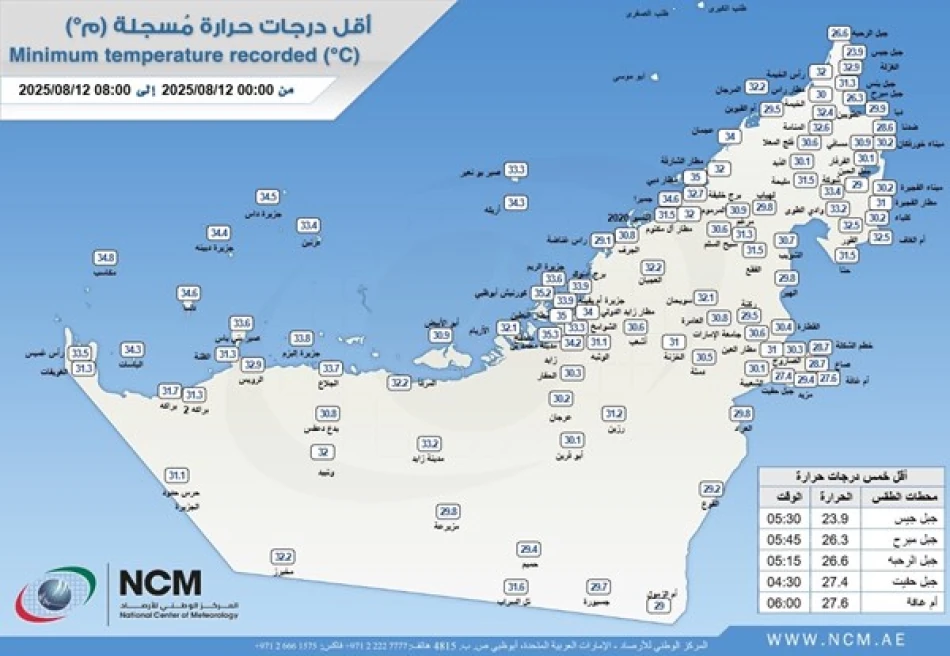
Mount Jais Hits Record Low Temperature in the UAE
UAE Records Lowest Temperature of 23.9°C as Winter Weather Arrives
The United Arab Emirates experienced its coolest morning temperatures of the season on Tuesday, with the mercury dropping to 23.9°C (75°F) at Jebel Jais in Ras Al Khaimah, signaling the arrival of the country's mild winter season and offering relief from the intense summer heat that defines much of the year.
Mountain Peak Leads Temperature Drop
The National Center of Meteorology reported that Jebel Jais, the UAE's highest mountain peak at 1,934 meters above sea level, recorded the country's lowest temperature at 5:30 AM local time. This reading represents a significant shift from the scorching summer months when temperatures regularly exceed 45°C (113°F) across the Emirates.
Geographic Advantage of Higher Elevations
Jebel Jais consistently records the UAE's lowest temperatures due to its elevation and location in the Hajar Mountains. The mountain's altitude creates a natural cooling effect, with temperatures dropping approximately 6.5°C for every 1,000 meters of elevation gain. This phenomenon makes the area a popular destination for both residents and tourists seeking cooler weather during the UAE's winter months.
Seasonal Weather Patterns Take Hold
The temperature reading marks the beginning of the UAE's most comfortable season, which typically runs from November through March. During this period, daytime temperatures across the country generally range from 24°C to 30°C (75°F to 86°F), creating ideal conditions for outdoor activities and tourism.
Economic Impact of Cooler Weather
The arrival of cooler temperatures signals the start of the UAE's peak tourism season, which contributes significantly to the country's economy. Hotels, restaurants, and outdoor attractions typically see increased visitor numbers during these months, as the pleasant weather draws both international tourists and regional visitors from neighboring Gulf countries.
The cooler weather also reduces energy consumption across the Emirates, as air conditioning demands decrease substantially from the summer peak. This seasonal shift typically results in lower electricity bills for residents and businesses, providing economic relief after months of high cooling costs.
Regional Climate Context
While 23.9°C might seem relatively warm by global winter standards, it represents a dramatic change for a desert nation where summer temperatures can reach 51°C (124°F). The UAE's winter temperatures are comparable to those experienced in other Gulf Cooperation Council countries, though coastal areas benefit from maritime influence that moderates temperature extremes.
This temperature pattern aligns with broader regional weather systems, as high-pressure systems from the north bring cooler, drier air to the Arabian Peninsula during winter months. The clear skies and low humidity that accompany these systems create the crisp, comfortable conditions that define the UAE's winter season.
Most Viewed News

 Layla Al Mansoori
Layla Al Mansoori






